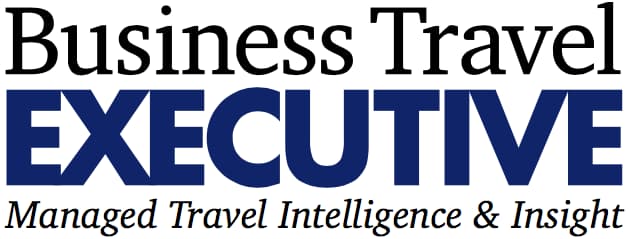SAP Concur will sunset its Locate & Active Monitoring service in favor of a network of travel risk management providers, including Healix, International SOS, Terra Dotta and WorldAware. Travel managers at some companies using Concur's product said they would explore options for tracking and other risk management services directly from their travel management companies or third-party specialists. Several TMCs and online booking tool providers, meanwhile, created or expanded partnerships with risk management firms.
"We work with WorldAware," said Direct Travel EVP Ronda Shipley during a September webinar hosted by Deem. "It's part of our core solution. There is always an opportunity to buy up – maybe you want to make sure you have programs for getting VIP travelers out.
"That's a benefit of à la carte TMC pricing, according to Areka Consulting's Louise Miller. "You can change what you buy over time," she said. "For example, how you handle your duty of care reporting. One customer may use the TMC; another may use a third party."
In its new approach, Concur will restrict its role to that of the data provider to the risk management companies. “Our customers are seeking specialized solutions that not only track and message travelers, but also provide critical security and medical assistance services when needed,” according to a company web page. “This need requires a more comprehensive approach."

GBT’s Fee Reflects Changing TMC Economics
Many buyers see merit in maintaining the traditional TMC transaction-fee model: It's easy to understand, accounts for all or most of the services provided and helps with internal cost allocation. For TMCs, though, the pandemic exposed the heavy reliance on booking volumes. Evolving customer needs require different TMC value propositions. These days, travelers have lots of questions and need lots of guidance before venturing out. In response, American Express Global Business Travel added a new $25 “contact fee” for customer phone calls and e-mails that don't result in a transaction. Travelers are also able to access trip-specific “know-before-you-go” information from the self-service Travel Vitals platform for no fee.
Expect more discussion about TMC pricing changes. Many models are under consideration, from management fees for professional services, reporting and consulting, to subscriptions for both travel itself (per-trip or per-traveler fees) and for technology. Guaranteed minimums may become part of more transaction fee and travel subscription fee models. Still, clients demanding the traditional transaction fee setup are likely to get it thanks to continued competition and weakness in business travel activity.
Discussing subscription models, Direct Travel’s Shipley said, “We have had a bit more appetite for that in Canada so far but in the United States, there has been a lot of discussion but no real interest from anyone currently buying from us to move in that direction.”
 Pre-Trip Approval Back In Vogue
Pre-Trip Approval Back In VogueIt's mission-critical travel only at many organizations, though some are traveling more. When travelers make plans, they probably need a formal OK. Senior management wants eyes on who is going where and why, and to have the means to void travel plans. Pre-trip approval now is among travel management's most crucial processes. TMCs and tech providers are enhancing systems to address the need.
SAP Concur updated Concur Request to allow clients to set parameters for what needs manager approval. Used for both pre-travel and expense authorization, Concur Request also is undergoing an interface update. Integration with Concur Travel allows for features like “approve then book.”
After the pandemic's onset, BCD Travel deployed a basic approvals solution for clients that had no formal process in place. World Travel Inc. upgraded its proprietary approval and notification system to accommodate frequent client policy changes. Direct Travel and Adelman Travel were among those to bring some self-service to approvals configurations. Adelman's system lets clients designate approvers and make other adjustments by themselves, including changes to authorization request or rejection prompts.
Travel tech firm Cornerstone Information Systems updated its policy management and authorization system with travel intel. Bookings trigger e-mails for approvals and alerts, as well as relevant communications to travelers, based on destination-specific risk info.
According to a September survey of 144 travel buyers by the Institute of Travel Management, 69 percent said the level of seniority for travel approval next year would be greater than it's been.
“Now, security approves all – domestic and international,” said Clive Gardner, Barclays global head of executive protection and travel and event security, speaking at ITM's virtual conference. “That will ease as country restrictions open up, but we've been cautious in easing those restrictions so far.”
Testing Can Help Business Travel Recover, But It’s No 'Silver Bullet'
Several airlines are facilitating COVID-19 testing among passengers. In-airport and at-home options should help restore some confidence among travelers and employers, as well as government authorities assessing when to reopen international air routes. Air Canada, Alaska, American, Hawaiian, JetBlue and United are among the airlines worldwide that have announced testing initiatives.
Travel managers welcomed these developments and expected they'd improve traveler perceptions – but had questions. "How does that affect the timing?" asked Jabil global travel manager Sheila Kittle during a September conference call hosted by The Company Dime. “Is this going to start creating some carrier preference among travelers and create other issues? I think it's a step in the right direction, but I don't look at this as the silver bullet for any big changes,” Kittle said
.“When we look at the whole end-to-end trip from a risk perspective, the bathroom in the airport and the activities you perform when you actually arrive – like going to bars – are substantially more risky to the traveler than the flight,” said travel risk expert Bruce McIndoe during an October GBTA webinar. “That's just the reality of the numbers.”
Airlines and airports can only control their own environments. To that end, Lufthansa Group is giving premium customers a higher level of service for testing, including priority lines at a big testing center in Frankfurt. During a September press conference, Lufthansa senior product director Bjoern Becker said the airline group would consider giving premium customers first crack at faster testing methods once they become available.









